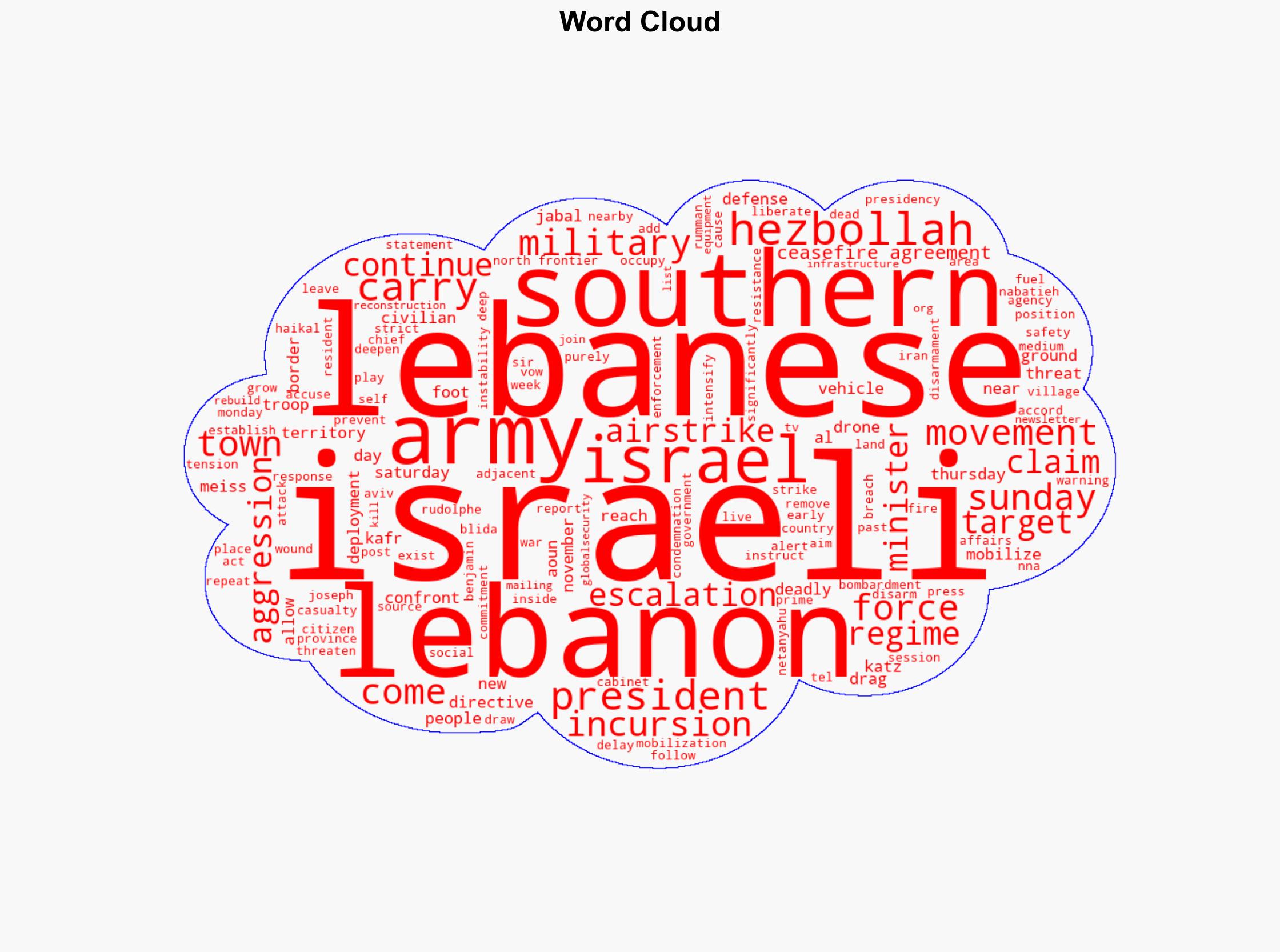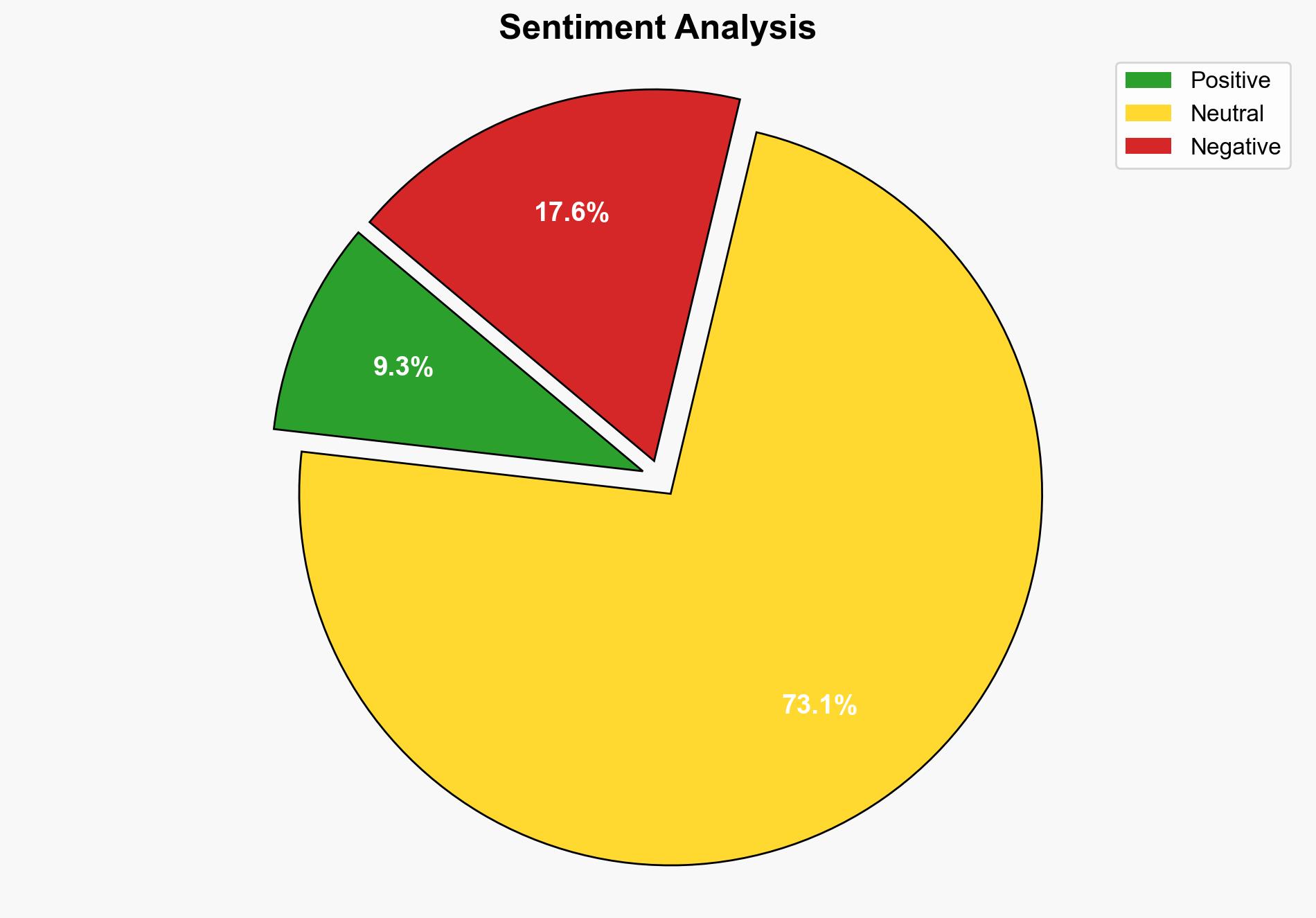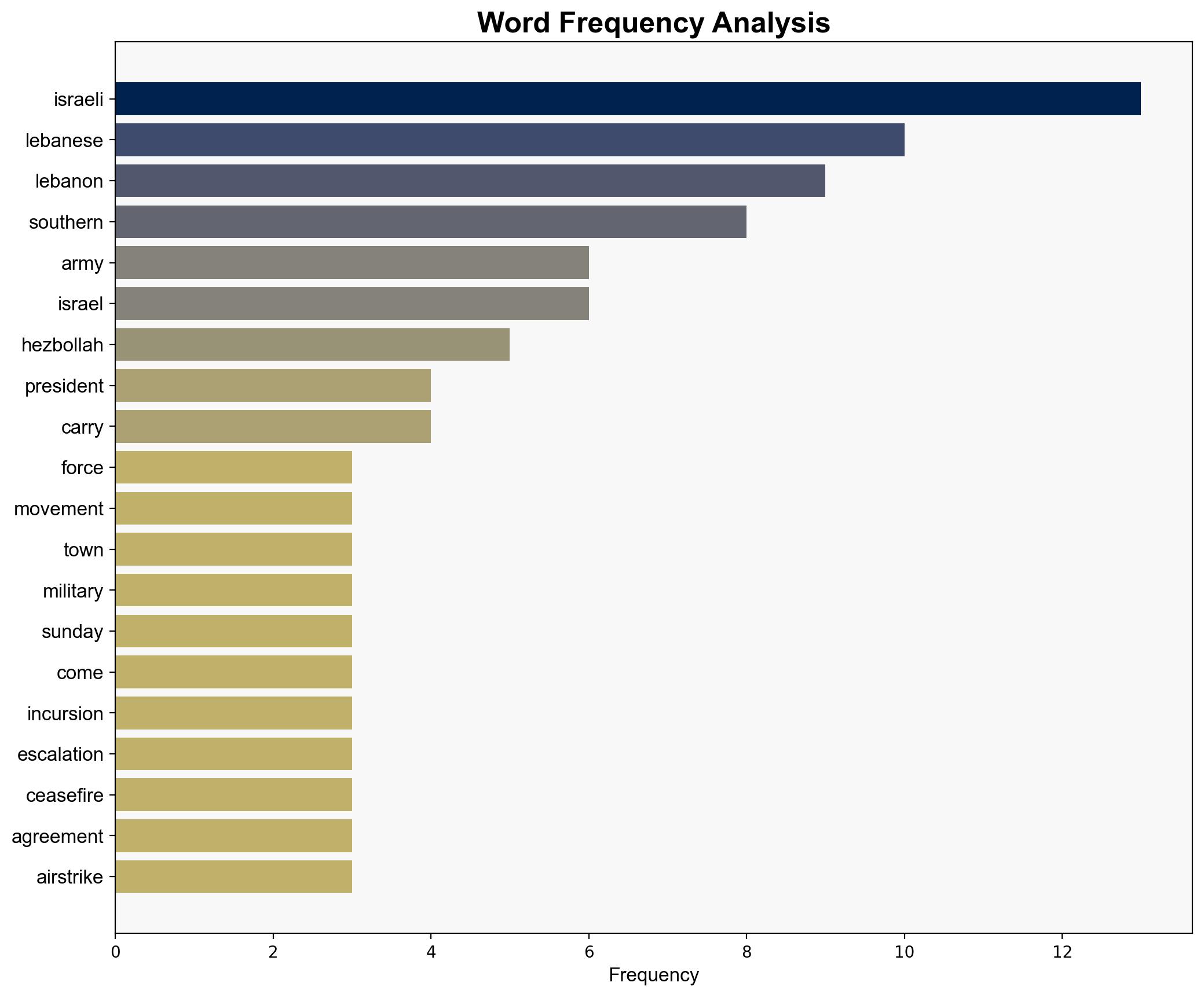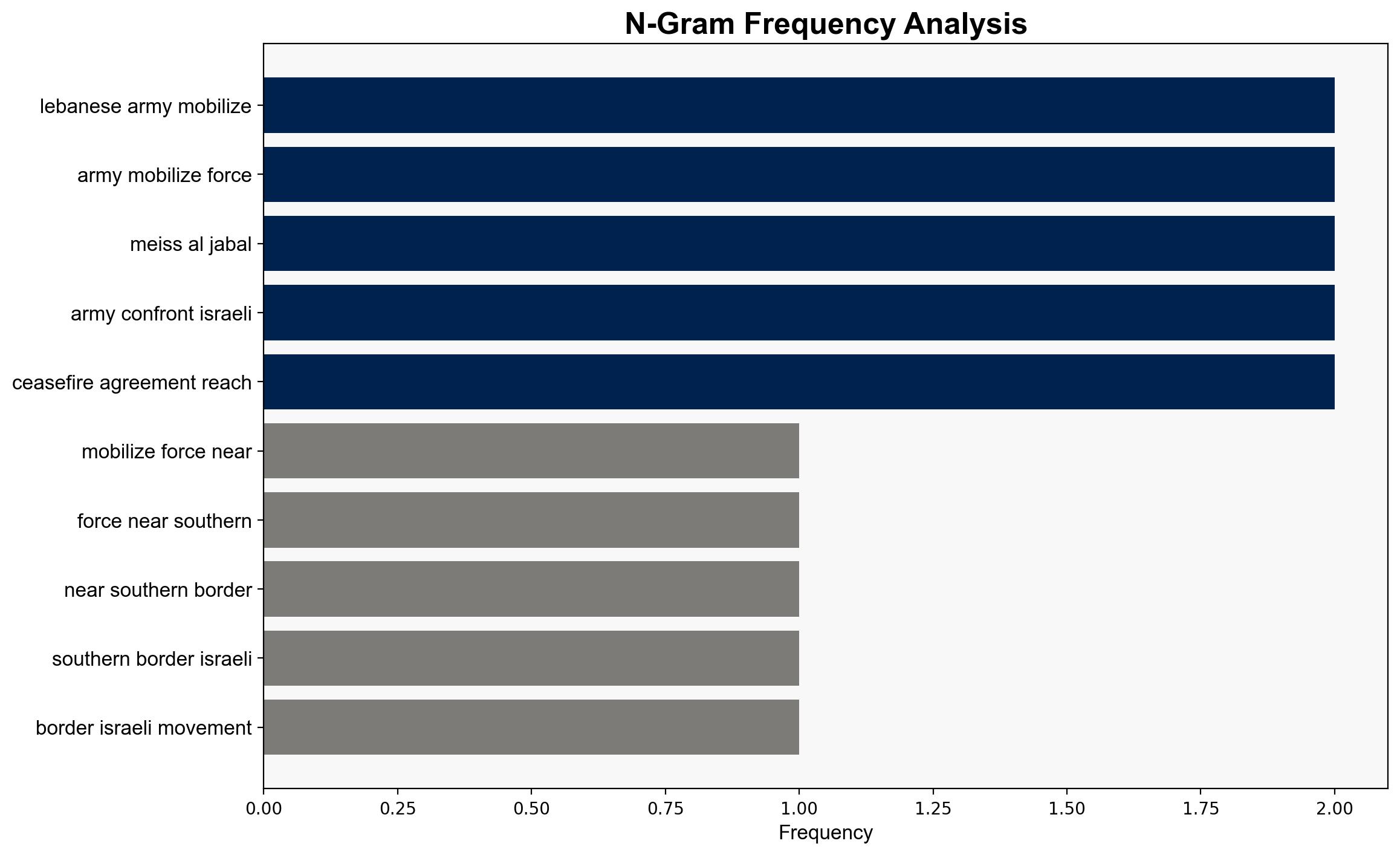Lebanese army mobilizes forces near southern border amid Israeli movements – Globalsecurity.org
Published on: 2025-11-04
Intelligence Report: Lebanese army mobilizes forces near southern border amid Israeli movements – Globalsecurity.org
1. BLUF (Bottom Line Up Front)
The Lebanese army’s mobilization near the southern border is a response to perceived Israeli military threats, possibly escalating regional tensions. The most supported hypothesis suggests a defensive posture by Lebanon to deter further Israeli incursions. Confidence level is moderate due to conflicting narratives and potential biases in reporting. Recommended action includes diplomatic engagement to de-escalate tensions and monitoring of military movements.
2. Competing Hypotheses
1. **Defensive Posture Hypothesis**: The Lebanese army’s mobilization is primarily defensive, aimed at deterring further Israeli military actions and protecting Lebanese sovereignty. This hypothesis is supported by the Lebanese president’s directive to confront incursions and the context of recent Israeli airstrikes.
2. **Provocative Maneuver Hypothesis**: The mobilization is a strategic maneuver by Lebanon, possibly influenced by Hezbollah, to provoke a response from Israel and gain international sympathy. This is supported by Israel’s accusations of Lebanon’s failure to disarm Hezbollah and the timing of the mobilization following Israeli threats.
Structured Analytic Technique: Using Analysis of Competing Hypotheses (ACH), the defensive posture hypothesis is better supported due to the alignment with Lebanon’s stated objectives and historical patterns of defensive mobilizations in response to Israeli actions.
3. Key Assumptions and Red Flags
– **Assumptions**: The Lebanese army acts independently of Hezbollah’s influence; Israeli military actions are primarily defensive.
– **Red Flags**: Potential bias in reporting from sources with vested interests; lack of independent verification of troop movements and casualties.
– **Blind Spots**: Limited insight into internal Lebanese military decision-making processes and Hezbollah’s strategic intentions.
4. Implications and Strategic Risks
– **Escalation Risk**: Increased military presence could lead to unintended skirmishes, escalating into broader conflict.
– **Geopolitical Impact**: Strained Lebanon-Israel relations may affect regional alliances and international diplomatic efforts.
– **Psychological Impact**: Heightened tensions may increase civilian anxiety and displacement in border areas.
– **Economic Consequences**: Prolonged conflict could disrupt trade and economic stability in Lebanon.
5. Recommendations and Outlook
- Engage in diplomatic dialogue with both Lebanese and Israeli governments to reduce tensions.
- Enhance intelligence-sharing with regional partners to monitor military developments.
- Scenario Projections:
- Best Case: Successful diplomatic intervention leads to de-escalation and resumption of ceasefire agreements.
- Worst Case: Full-scale military conflict erupts, destabilizing the region.
- Most Likely: Continued low-level skirmishes with periodic diplomatic engagements.
6. Key Individuals and Entities
– Joseph Aoun
– Rudolphe Haikal
– Israel Katz
– Benjamin Netanyahu
7. Thematic Tags
national security threats, regional focus, geopolitical tensions, military escalation





